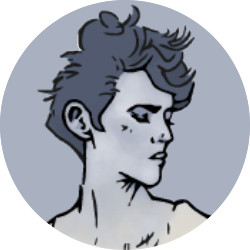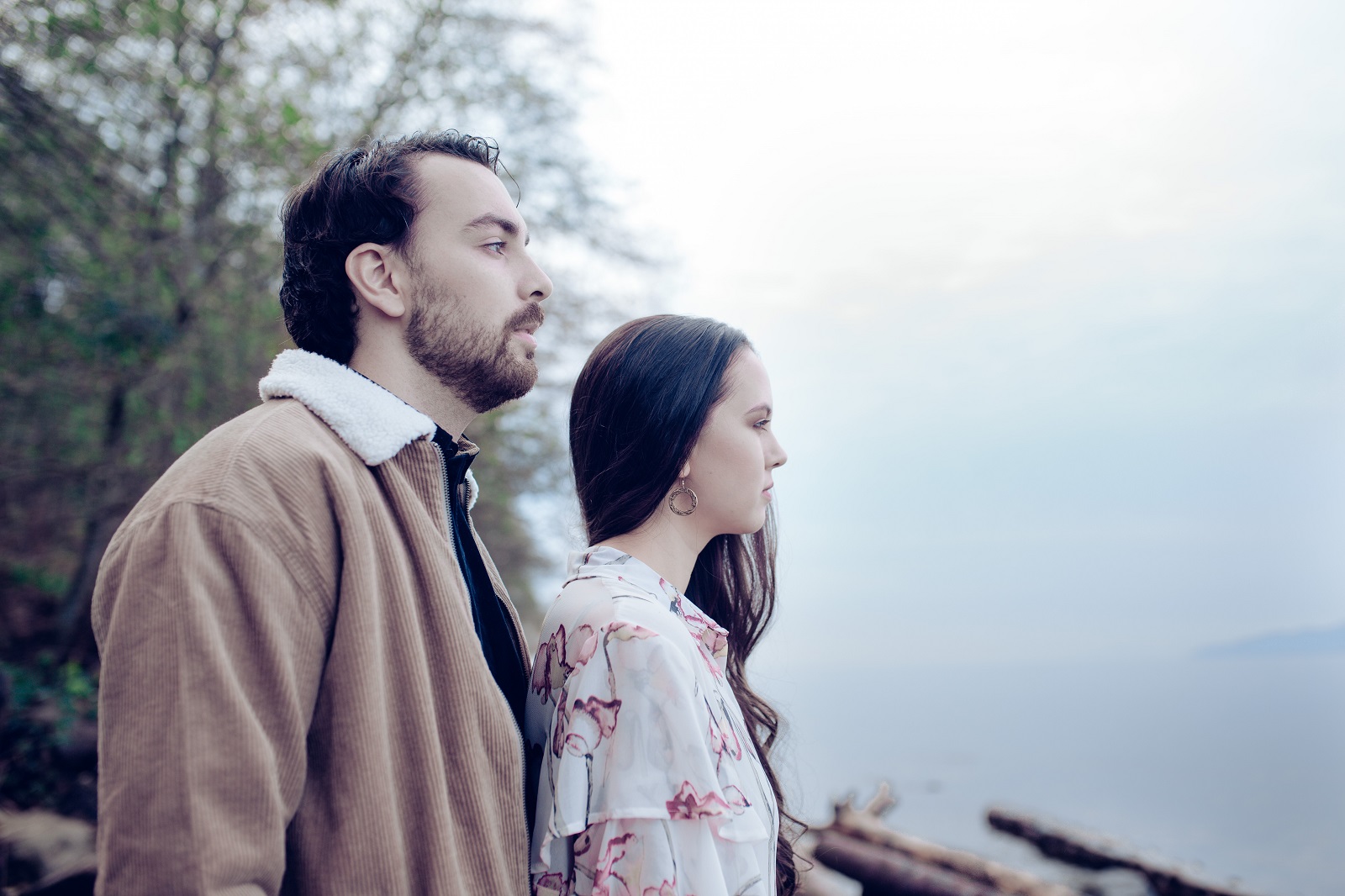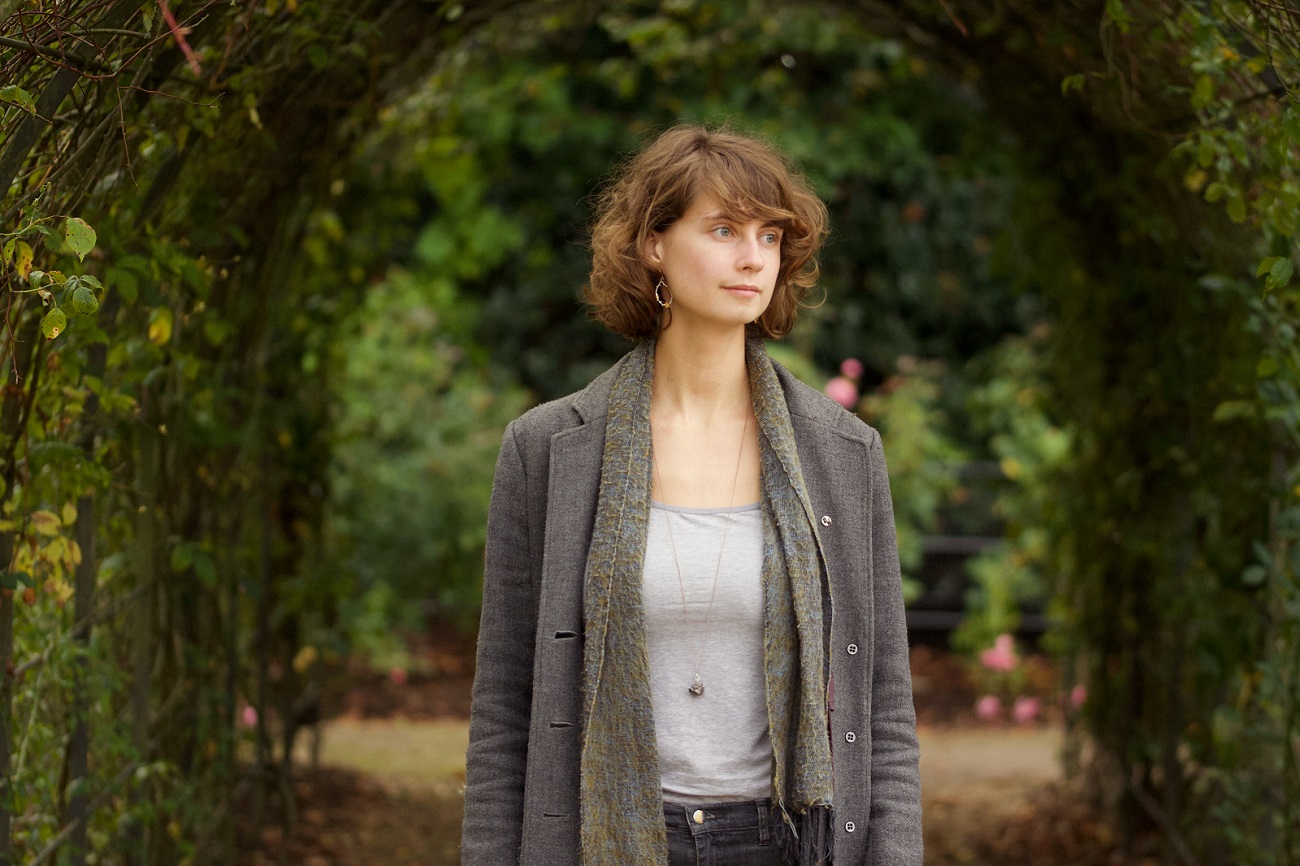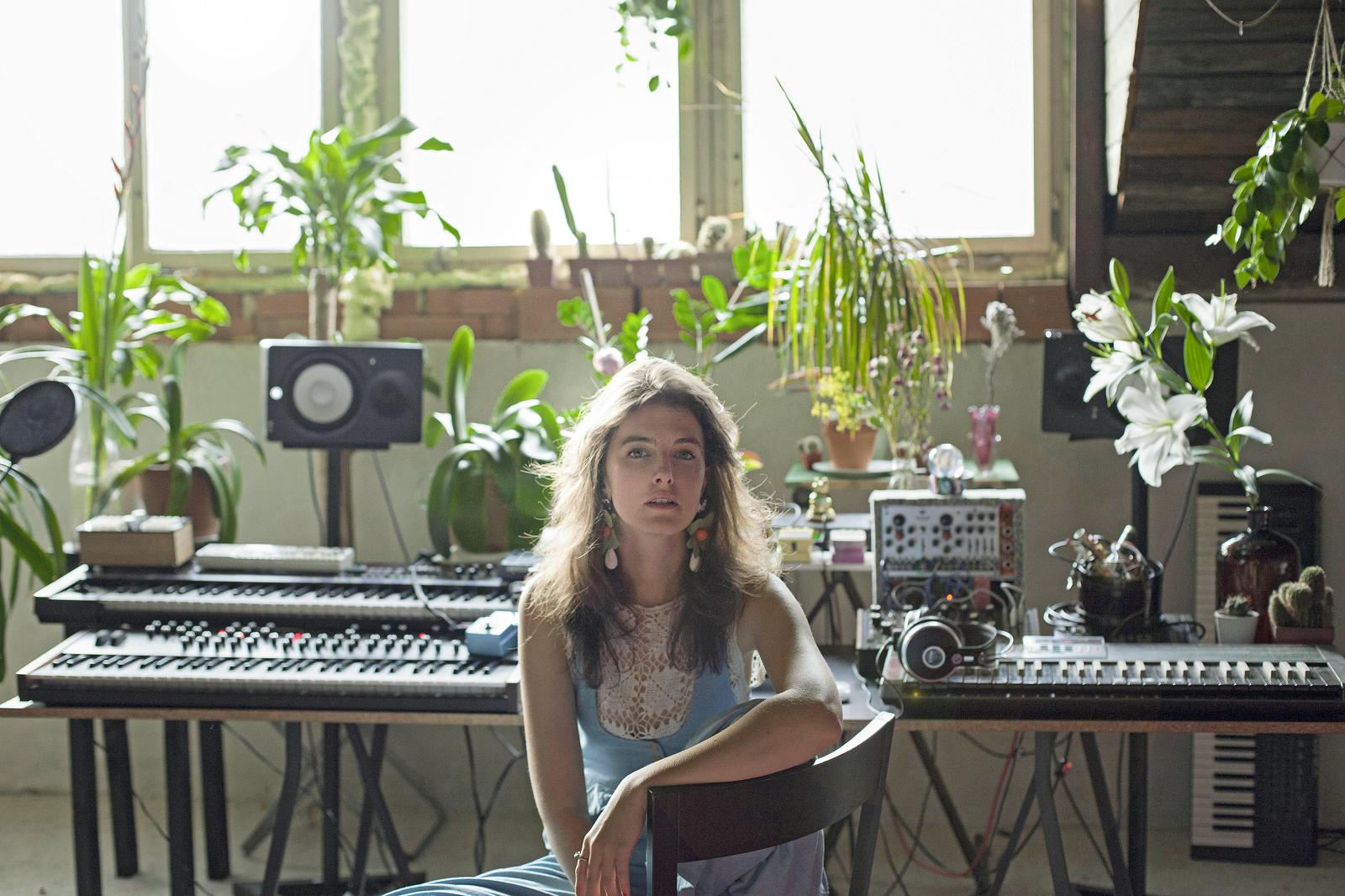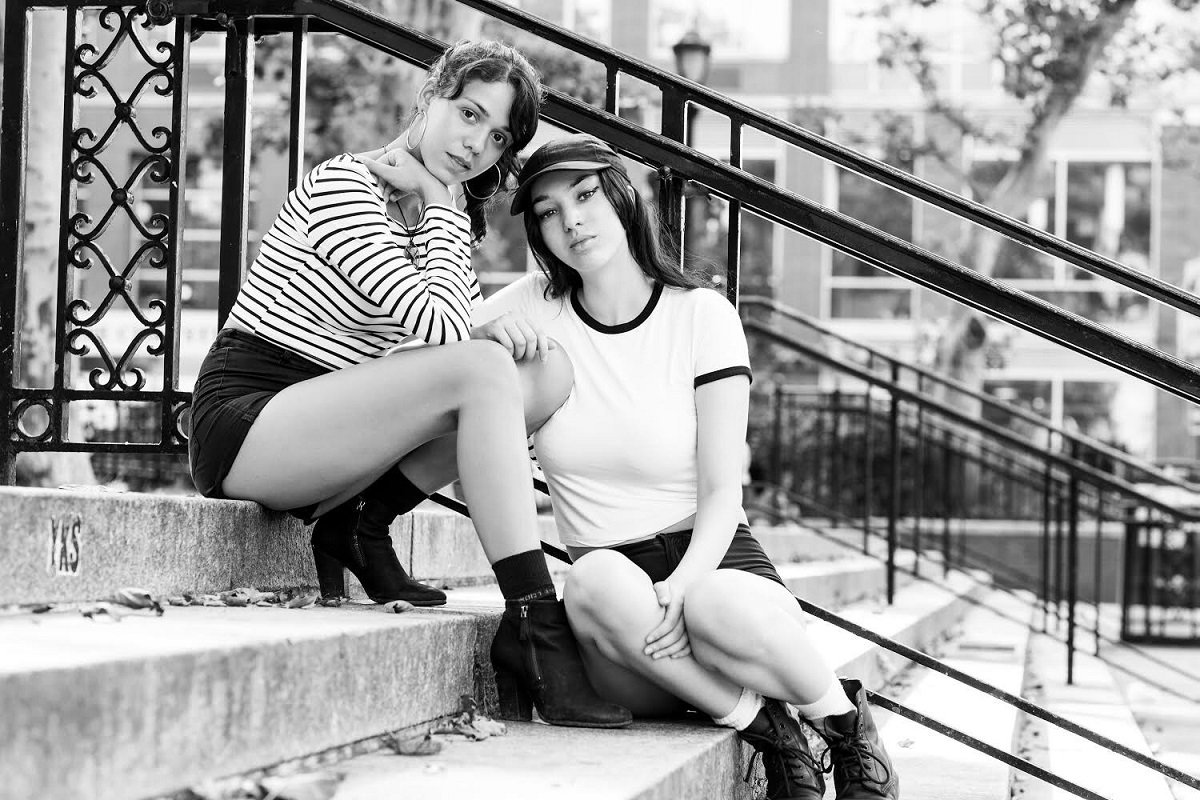 Photo credit: INOA
Photo credit: INOA
The Interview
How long have you been writing songs for as individuals, and what was is that inspired you to start?
Mari: I think Alice started writing immediately.
Alice: [laughs] I think, since I could play piano — I started when I was four — I was making stupid songs. I’ve been making songs for a very long time.
Mari: I was trying my hand at it from nine or ten onwards, but I was more focused on performance. It was psychological though — I didn’t really identify with composing or songwriting until high school and more heavily in college. I wrote poetry before then. I would say what prompted us to start would be that both of our parents are artists. Our dad is a composer, musician, singer and voice teacher, so we’ve just been surrounded by that all our lives.
And what prompted you to start writing with the intention of recording and releasing material together?
Mari: We’ve been singing together and harmonising forever. When I was in college and visiting home, we started experimenting a little bit with our version of jamming — over instrumentals and pieces Alice was working on. That felt really good, so when I graduated and moved back, we started to look at it a little more seriously. The music spoke for itself, and we realised we wanted to write and make sure we recorded it at a real studio, not just on our iPhones.
How have your musical efforts away from Sybling prepared you for this project?
Alice: I think, for me, it was newer, because Mari had already released an EP with Smoke and Sugar. I’d always worked on composing things for short films or theatre, but I’d never recorded before. So, in that sense, I was prepared more composition-wise and knew what I wanted from sound, but Mari was more prepared in terms of knowing what to expect.
Mari: Yeah, the studio process and release process. That’s a common theme: where Alice comes with experience on one side, I come with experience on the other side. As a team, we’re well rounded.
Is there an aspect of being songwriters and musicians that you’ve grown to enjoy more since joining forces?
Mari: I would say I’ve come to appreciate patience and quality a lot more since working with Alice really seriously. Previous projects, I tended to be a little spontaneous, do a lot of improv and then be excited about some kind of immediate gratification or external result or product. I ended up never being that proud of it. Working with Alice, I really came to appreciate taking the time that’s needed to make something really, really feel right. Now this EP is out, I feel like I could listen to this twenty years later and still really love it and feel like we had the sound that we were looking for.
Alice: I think, on the flip-side, I’ve kinda learned to be a little less severe about my music. [laughs] I know in the studio sometimes I was kinda scary because I was so strict. I’m like, “Oh, it has to be like this!” I know Mari’s really good at collaborating too, so I learned a lot about collaboration through working with her.
How easy then do you find it to share songwriting duties?
Mari: I think we came at it organically, knowing that we could take up a different amount of space sonically with each song. We allowed each other to find space in each song. Frequently, Alice would take on most of the instrumentation and composition. She was playing all the instruments on the EP except for some percussion I played. It kinda depended on how each song came about: whether we were working on the melody together, or figuring out what would work as a bridge part, or Alice coming with a completely written piece that I would add some lyrics or a harmony to. The full spectrum was there — I feel it was a song-by-song basis.
Do you connect quite quickly to each other’s ideas?
Alice: I think we do… Don’t we? [laughs]
Mari: Yeah, actually it’s pretty natural.
Alice: Your hesitation scared me. [laughs] I think, because we also grew up listening to the same music — and I think what you grow up listening to is generally what you end up wanting to make — we have a lot of similar tastes, so are rolling with the same wavelength when we’re thinking what sounds good.
Mari: Yeah, it’s very intuitive in that way.
What is your actual songwriting process then?
Alice: The Grim and Under — those were songs that I’d already written some years before. I came to Mari with them, and we’d think up where to put harmonies and stuff like that. For La Baleine, our father originally wrote that tune and then Mari came up with more lyrics to it. For Call Her Back, that was a song that we wrote together — we sat down together and came up with melody, then Mari wrote the lyrics. She’s Still Alive in the Past was just a random day in the studio — I had this tune in my head and just played around with it. Mari thought about adding percussion to it, and that was definitely the most experimental one.
How long do your creative ideas generally take to develop?
Alice: It depends on the song. Some can be written in a day, and some develop over years.
Is there anything in particular you do to stimulate your own creativity?
Mari: Honestly, I don’t. I think that’s probably a good practice to discover. I feel at this point, all I’ve figured out is how to assess when I am not in a highly creative, receptive state, and to be like, “Ooh, I’m kinda blocked right now.” But usually that’s not the case when the two of us are sitting down together.
Do you find then that, when you are together, the ideas come more quickly and that you play off of one another quite well?
Mari: We definitely play off each other well. Every now and then we’ll find a block and be like, “Oh, that’s weird. We’ll have to try again another day.” Then, the next day it’s dissipated. But usually it flows pretty smoothly.
How do you keep yourself interested in your art when the initial joy of inspiration wears off?
Alice: For me, music is the thing that I understand the most. This sounds super cheesy, but it’s sort of a language, so it’s the way that I connect best to people and I how I understand how to talk to people or share ideas. Music is a part of my everyday life, so I don’t understand how I could lose inspiration for the art, because it’s just always there.
Mari: Music inspires me. When I feel blocked, or when I feel a lack of inspiration in the world, I can put my Spotify on shuffle and feel inspired.
Is there a type of music that tends to unblock you, or is it just random?
Mari: For me, it’s really random — I like a lot of different types of music. It’s about mood, so I’ll just read my mood and tune into that.
What do you feel is the most important element of a Sybling song?
Alice: Aren’t they all minor key? [laughs] Is that an important element? I think that’s the darkness, the mysteriousness. I can’t write a song that’s not in minor key, but Mari: You have before, right?
Mari: I have, but honestly it’s not that common. [laughs]
Alice: It’s hard!
From where do the surreal, dark fantasy elements of your work come from?
Alice: There are probably a lot of places it comes from. In a superficial way, it comes from… I watch a lot of horror movies in my free time, so I find it easy to use images from horror movies. But also, I think our EP deals a lot with the inner demons that we’ve had, and finding a way to connect with them through music — sitting your demons down to tea.
Mari: Exactly. I feel like, looking for some kind of solace from the knots that you can get into in your own head. It’s a way of helping each other and helping ourselves. A meeting with demons, and being able to live with the tension of living with them, always.
Have their been any notable obstacles you’ve faced musically thus far, either as a band or as individuals?
Alice: We’ve had our share, for sure. I think our biggest struggle as a band has been dealing with our different personalities, because I’m very introverted, and I like playing music and recording, but I really don’t like performing or going to concerts and stuff. Whereas Mari, I think you love performing and concerts and dealing with people. So I think that, although it’s not musically a challenge, has been our biggest challenge as our duo: understanding each other, and trying to form compromises.
Mari: Yeah, once the music has been written, how do we interact with the world as a unit of two? That’s something that we’re figuring out.
How far along do you feel you’ve made it in that process?
Mari: Well, we learned a lot from our EP release show — that was really helpful. We’re in the process of figuring out… I guess ‘branding’ is the best word I can use to describe the other side of it.
Alice: Eugh! Gross. [laughs] I am not interested in that, but it is important.
Do you see more live shows in your future?
Mari: Yeah, in the next few months, we’re gonna really put together a clear game-plan for how we want to approach live shows and have infrequent shows, come summer, at the right places and events.
Is there anything in particular, Alice, that could make you more excited about that prospect?
Alice: [laughs] I think it’s just dealing with being uncomfortable performing and being in front of a lot of people.
Okay, so is there an element of your craft that you would especially like to improve?
Mari: In that vein, I would say our live performance — just because we haven’t had as much practice together as a duo.
Alice: Also, a little bit of mixing — that would be a good thing to learn more about. Because, every song I listen to, I’m always like, “Hmm, I’d like it if it had more of this feeling to it, but I’m not sure how to do that.” I think that’s very much related to the mixing process. I want to be able to find someone who understands the computer aspect, and then find a way to really understand each other. Maybe I’ll pick up some of the terms.
Mari: Yeah, vocabulary is very important.
What do you feel that you gain then from being artistically inclined?
Mari: I would say, immediately, just perspective. Reality can get pretty intense, so to have some kind of creative perspective on it helps relieve some of the burden of being human. Existentially and psychologically, I feel a little more grounded in being ungrounded.
Alice: I think what you said really captures it. There’s a connecting to a part of oneself that I think we can only really do through art.
Is there anything that you specifically hope to communicate to people through your work?
Alice: I want to communicate that people who are struggling with their own demons, they aren’t alone. I hope that when they listen to the EP, they can feel that there is someone else in the world who understands how they feel — it’s okay that things aren’t always dandy.
Mari: Exactly. Being able to feel not okay and have that be a normal part of being alive – it’s not a problem.
Finally, to what extent would you like your creative output to define you as people?
Mari: I don’t necessarily like to be defined by one thing. When I’m feeling in a certain mood — kind of melancholy — to be able to put on a Sybling track and walk through that mood, sit with it and allow it to pass when it does naturally, but then also have moments where I feel in a different mood and can wear that genuinely through music and art.
Alice: I think that I define myself mostly just by the definition of musician or composer, and I like that definition.
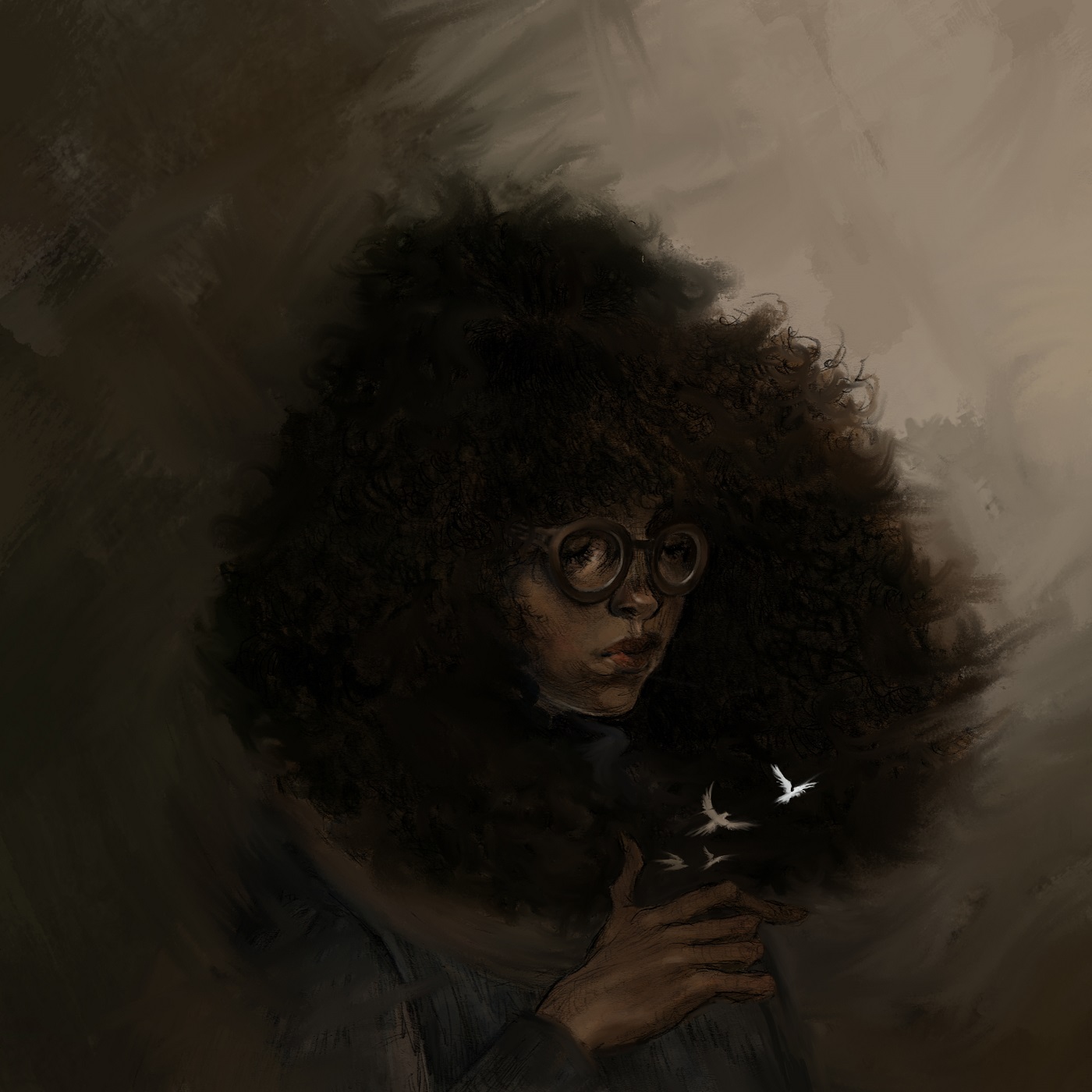 Sybling featured onBeautiful Songwriting 7
Sybling featured onBeautiful Songwriting 7You can stay updated with Sybling on Facebook and Instagram, and stream and purchase their debut EP on Bandcamp.
If you enjoyed reading this interview and happen to think we're doing something right, please consider sharing the link -- whether on social media, or just with a friend, it'd really help us out! We're also on Facebook, Instagram (@alonelyghostburning) and Twitter, so if you'd like to keep up-to-date with the publication of new content, and also provide us with a whole heap of motivation, please do give us a like or follow.
